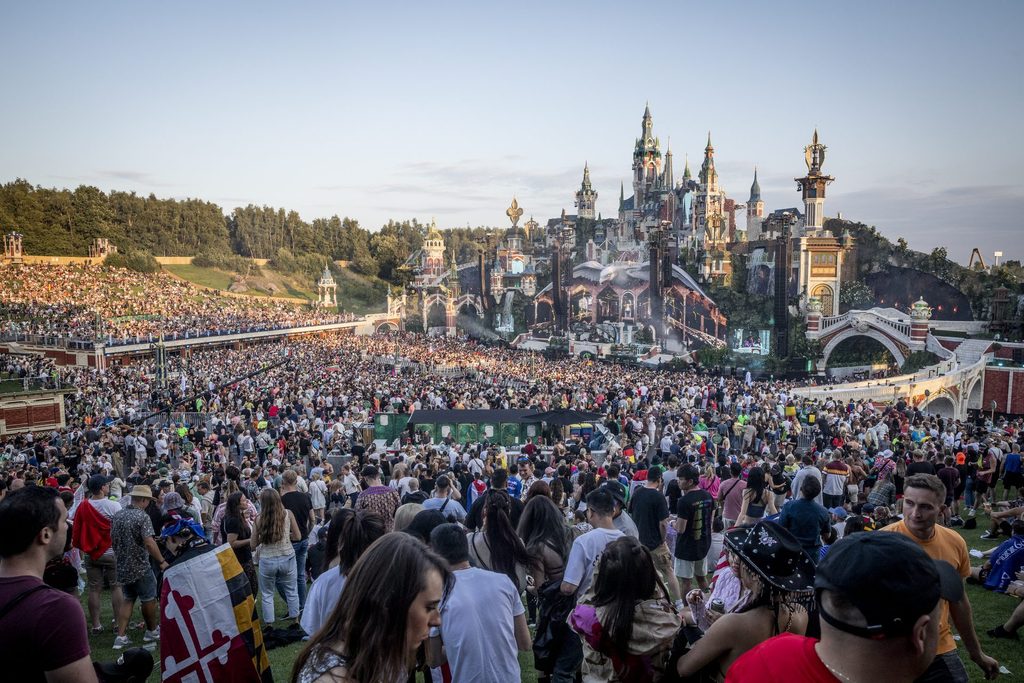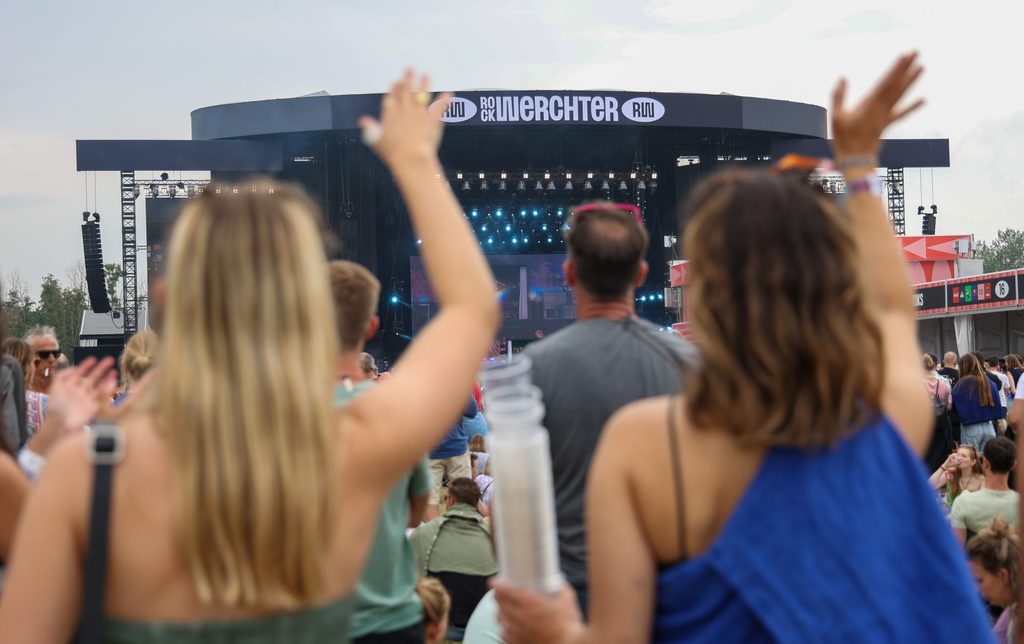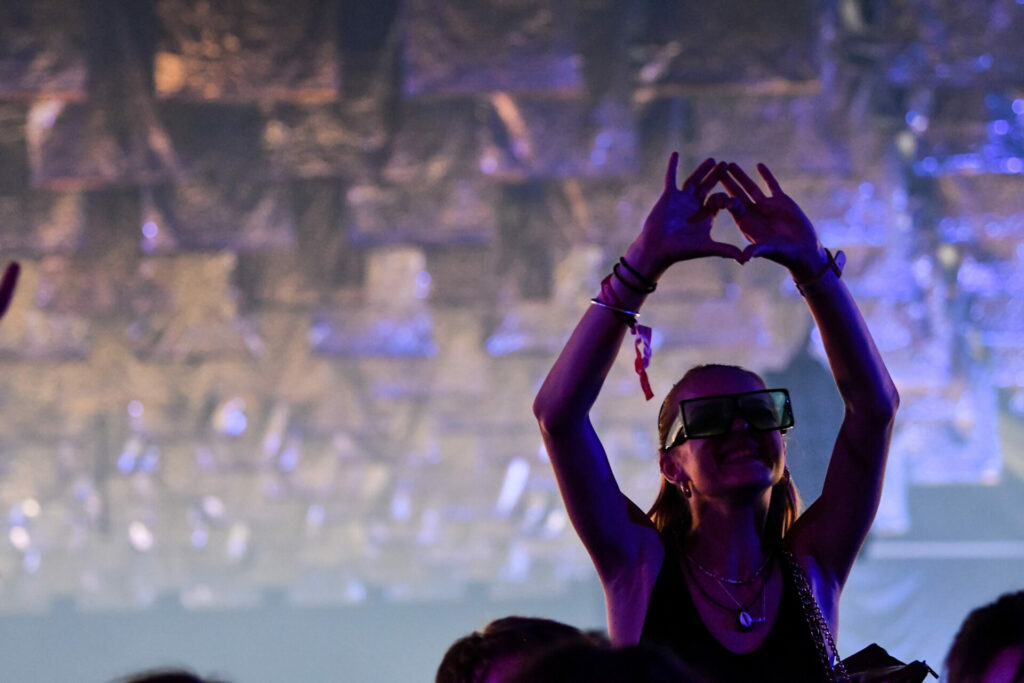As the summer festival season approaches and people buy their tickets, one thing is certain: music festivals have become significantly more expensive over the past decade – even when taking inflation into account.
Taking a sample of 15 festivals, De Standaard took a closer look at the prices for 'combi' tickets for the five biggest in Belgium (Tomorrowland, Rock Werchter, Pukkelpop, Graspop and Dour), two of the most remarkable growers (Les Ardentes and the Dutch Best Kept Secret, which is very popular with Belgians) and eight medium-sized festivals (Lokerse Feesten, Alcatraz, Paradise City, Extrema Outdoor, Cactus, Dranouter, Wecandance and Reggae Geel).
The most striking observation was that festival prices have risen much faster than inflation over the past decade: between 2013 and 2024, the cost of living went up by 32%, but the average price for a combi ticket of one of the five biggest festivals went up by 67% – more than double the rate of inflation.

Credit: Belga / Hatim Kaghat
Importantly, artist fees have grown significantly in recent years, all festival organisers indicated. This is partly because the music sales market has been completely obliterated by streaming since 2013, meaning that many artists have become largely dependent on concerts.
Additionally, wages, energy prices and logistical costs such as renting stages and lighting equipment have risen sharply, especially since the Covid-19 pandemic, taking up an above-average share of the organisers' budgets.
Faster than inflation
For this year, the Federal Planning Bureau assumes an average inflation rate of 3% compared to 2023. Tomorrowland and Graspop remain exactly in line with this with their price increases. Eight other festivals deviate from it with increases of between 5% and 8%, including Rock Werchter (+6%) and Pukkelpop (+5%).
Compared to 2019 (the year before the pandemic), the prices of the five biggest Belgian festivals rose by an average of 30%. A similar trend is being observed abroad: since 2019, Lowlands (Netherlands) became 54% more expensive, Primavera Sound (Spain) increased by 47%, and Glastonbury (UK) shot up by 42%.
In absolute terms, both Glastonbury (€422) and Lowlands (€325) are also more expensive than Belgium's frontrunner Rock Werchter (€309).

First day of the Rock Werchter music festival in Werchter, 29 June 2023. Credit: Belga / Virginie Lefour
While a combi ticket to Rock Werchter has the highest price of all festivals in Belgium this year, the festival's price rise is relatively slow compared to its competitors. Between 2013 and 2024, the price of a combi ticket for Rock Werchter rose by 55%, while Dour (+57%), Tomorrowland (+63%), Pukkelpop (+69%) and Graspop (+93%) added more.
For Les Ardentes (+169%) and Best Kept Secret (+173%), tickets even became 2.5 times more expensive.
Part of that ratio has to do with certain fixed start-up costs such as those for security, stages or fences. When those costs add up, they weigh proportionally more heavily on the budget for smaller festivals than for larger ones.
Another important factor to take into account is that some festivals added extra stages or festival days. In 2016, Pukkelpop added an extra day to its festival, going from three to four days – meaning a third more music for your money. The same is true for Graspop, which added a full festival day in 2022.
Les Ardentes, on the other hand, did not get an extra festival day but has added more stages since its move to a larger site, where it now receives 3.5 times more visitors and invests in bigger names, such as headliner Kendrick Lamar in 2023.
Related News
- New Brussels festival unveiled later this year
- 'Can't pull it off': No Werchter Boutique or TW Classic this year
- Rock Werchter announces 20 more acts for 2024
In any case, festival goers seemingly do not have a problem with the price increases for the larger festivals, and even the €300-threshold did not curb the enthusiasm for visitors of Graspop (two of the four days sold out) or Rock Werchter (three of four days sold out, and about 90% of combi tickets were sold).
Pukkelpop's combi tickets sold out in 48 hours, giving the festival its best start since it launched in 1985. At Tomorrowland, tickets sold out in less than half an hour, as expected.

